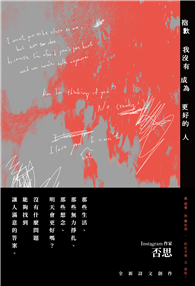In The Second Battle for Africa, Erik S. McDuffie establishes the importance of the US Midwest to twentieth-century global Black history, internationalism, and radicalism. McDuffie shows how cities like Chicago, Detroit, and Cleveland, as well as rural areas in the heartland, became central and enduring incubators of Marcus Garvey’s Black nationalist Universal Negro Improvement Association (UNIA) and its offshoots. Throughout the region, Black thinkers, activists, and cultural workers, like the Grenada-born activist Louise Little, championed Black freedom. McDuffie explores Garveyism and its changing facets from the 1920s onward, including the role of Black midwesterners during the emergence of fascism in the 1930s, the postwar US Black Freedom Movement and African decolonization, the rise of the Nation of Islam and Malcolm X in the 1950s and 1960s, and the continuing legacy of Garvey in today’s Black Midwest. Throughout, McDuffie evaluates the possibilities, limitations, and gendered contours of Black nationalism, radicalism, and internationalism in the UNIA and Garvey-inspired movements. In so doing, he unveils new histories of Black liberation and Global Africa.
| FindBook |
有 1 項符合
The Second Battle for Africa: Garveyism, the Us Heartland, and Global Black Freedom的圖書 |
 |
The Second Battle for Africa: Garveyism, the Us Heartland, and Global Black Freedom 作者:McDuffie 出版社:Duke University Press 出版日期:2024-12-17 語言:英文 規格:平裝 / 440頁 / 普通級/ 初版 |
| 圖書館借閱 |
| 國家圖書館 | 全國圖書書目資訊網 | 國立公共資訊圖書館 | 電子書服務平台 | MetaCat 跨館整合查詢 |
| 臺北市立圖書館 | 新北市立圖書館 | 基隆市公共圖書館 | 桃園市立圖書館 | 新竹縣公共圖書館 |
| 苗栗縣立圖書館 | 臺中市立圖書館 | 彰化縣公共圖書館 | 南投縣文化局 | 雲林縣公共圖書館 |
| 嘉義縣圖書館 | 臺南市立圖書館 | 高雄市立圖書館 | 屏東縣公共圖書館 | 宜蘭縣公共圖書館 |
| 花蓮縣文化局 | 臺東縣文化處 |
|
|
圖書介紹 - 資料來源:博客來 評分:
圖書名稱:The Second Battle for Africa: Garveyism, the Us Heartland, and Global Black Freedom
|






![塔木德:猶太人的致富聖經[修訂版]:1000多年來帶領猶太人快速累積財富的神祕經典 塔木德:猶太人的致富聖經[修訂版]:1000多年來帶領猶太人快速累積財富的神祕經典](https://media.taaze.tw/showLargeImage.html?sc=11100697818)




